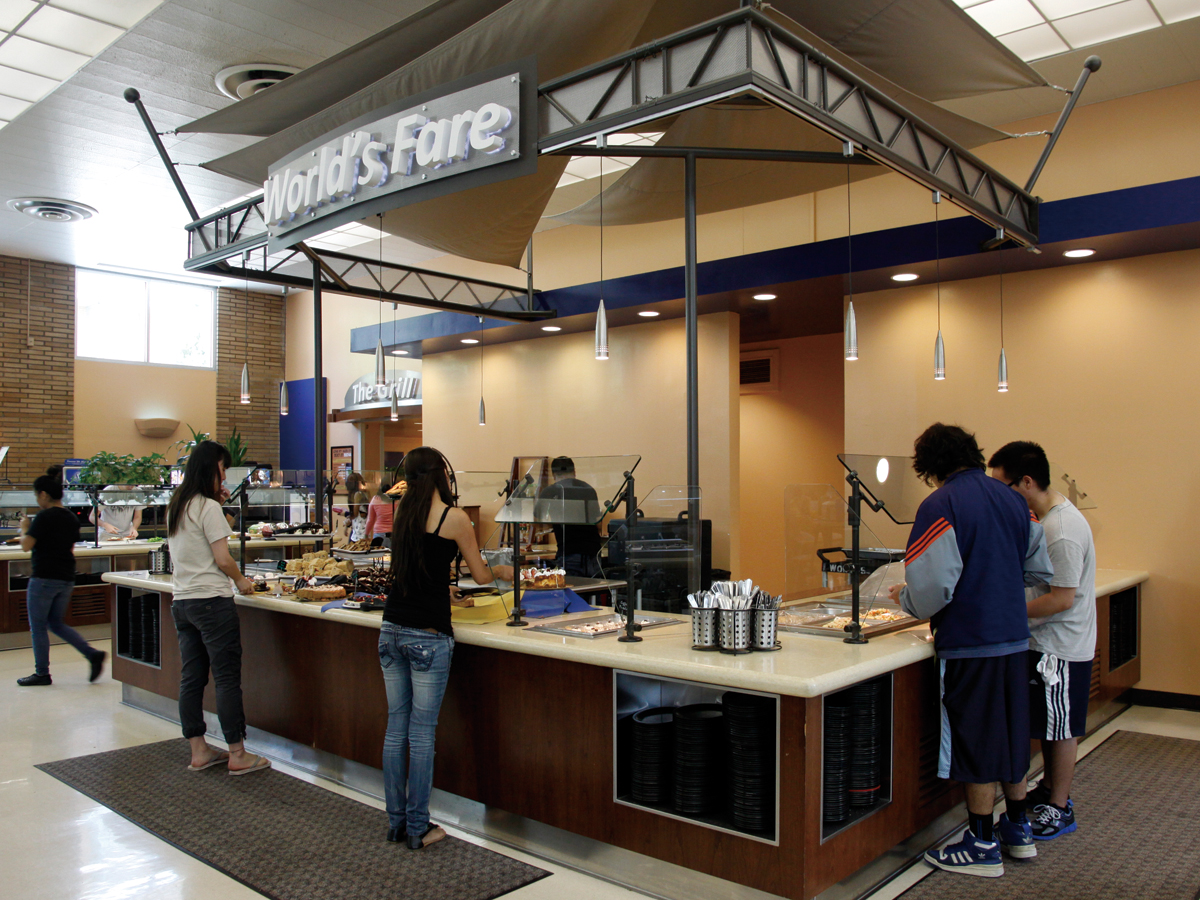
The first official food distribution of the mobile R’Food Pantry, an initiative started by affiliated organizations of the Chicano Student programs: Providing Opportunities Dreams Education in Riverside (PODER) and Undocumented Student Programs, began on Wednesday May 27. The initiative seeks to provide free, accessible food and other essentials to UCR students, staff and faculty who have difficulty attaining these necessities.
While third-year linguistics and anthropology double major and Global Food Initiative fellow, Daniel Lopez headed the initiative, former UCR student, Ana Coria, was the first to come up with the idea of a food pantry on campus.
Coria believed the many students in the Undocumented Student Program needed a resource like the food pantry due to the amount of students who skip meals. In addition, Coria noticed the fact that other campuses such as UCLA already have food pantries for students in need.
Lopez explained that because undocumented students are not able to receive federal grants or loans, they oftentimes have difficulty making ends meet for food expenses. “A lot of the [undocumented] students were having difficulty even staying here [at UCR], just continuing as students on campus,” Lopez elaborated.
Mafalda Gueta, president of PODER, further stated,“undocumented students constantly have to fill that [financial] gap, so some of them work two jobs or try to find scholarships that don’t require residency or citizenship. A lot of students go hungry because they choose to pay their rent instead of eating.”
Although the pantry first stemmed as an initiative to assist undocumented students, Gueta explained that it is not just an undocumented student issue, but has become a UCR and UC-wide student issue as well.
Student food security has been a priority within UC President Janet Napolitano’s Global Food Initiative. Both the University of California Office of the President (UCOP) and the University of California Student Association (UCSA), have provided funding for the food pantry through $2,500 in fellowships to UCR students.
A bulk of the food is coming from the R’Food Pantry’s partnership with Feeding America, but donations have also been a significant contribution. On May 14, the pantry hosted a canned food drive competition where numerous UCR organizations were able to donate canned food and non-perishables for the pantry.
The mobile food pantry will not have a weekly distribution, however the conference room and kitchen of ASUCR will serve as the temporary location for the food pantry, where it will be open five days a week. Donations can also be submitted to the ASUCR offices.
According to Lopez and Gueta, only canned or non-perishable goods can be donated because the ASUCR location is not conditioned to store fresh produce. Lopez, however, will seek an adjustment in the future. “The ultimate goal is to ensure that we are not just buying food that feeds the students but is good for them too,” said Lopez. The R’Food Pantry has been working with the UCR Community Garden to increase the fresh produce for the pantry in the future.
Although the daily food pantry is not currently carrying fresh produce, the mobile R’Food Pantry served items such as lettuce, potatoes and apples at Wednesday’s distribution.“We ask students to assess their own needs since we don’t want to deny anyone food they might need,” Lopez stated. All students were able to fill up two grocery bags and were able to choose what food they wanted.
Other organizations such as R’Kids have played a part in the food pantry initiative by volunteering during distributions, as well as promoting the food pantry through advertisements so students become aware of the resource. Lopez stated that students are more than welcome to volunteer to assist with distribution. However, by next year the pantry plans to have a paid staff and interns.
R’Food Pantry initiative meetings are on Mondays at 3 p.m. in the Chicano Student Programs Office.








